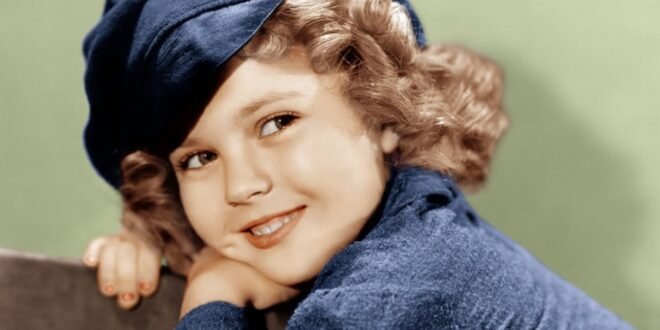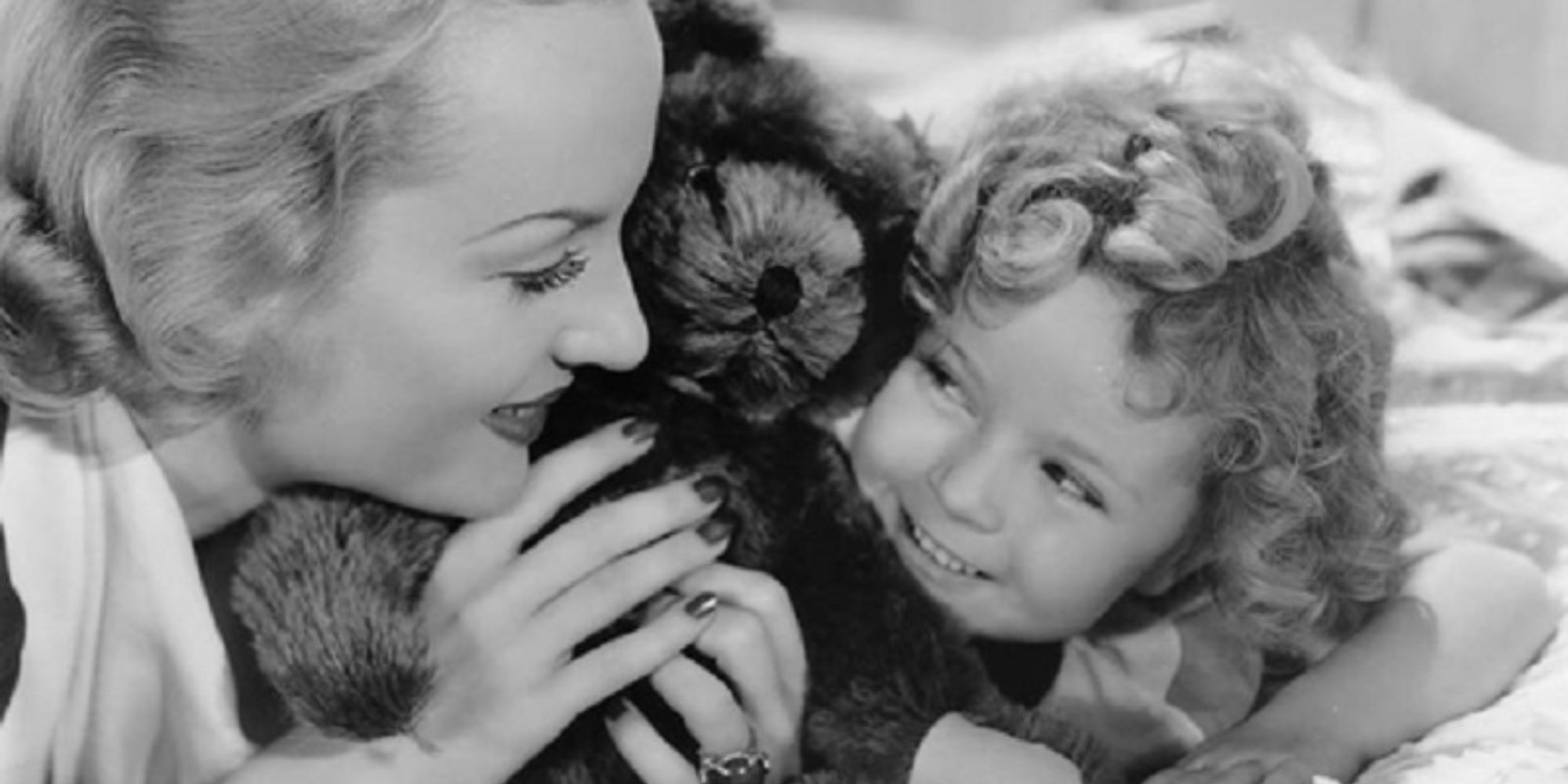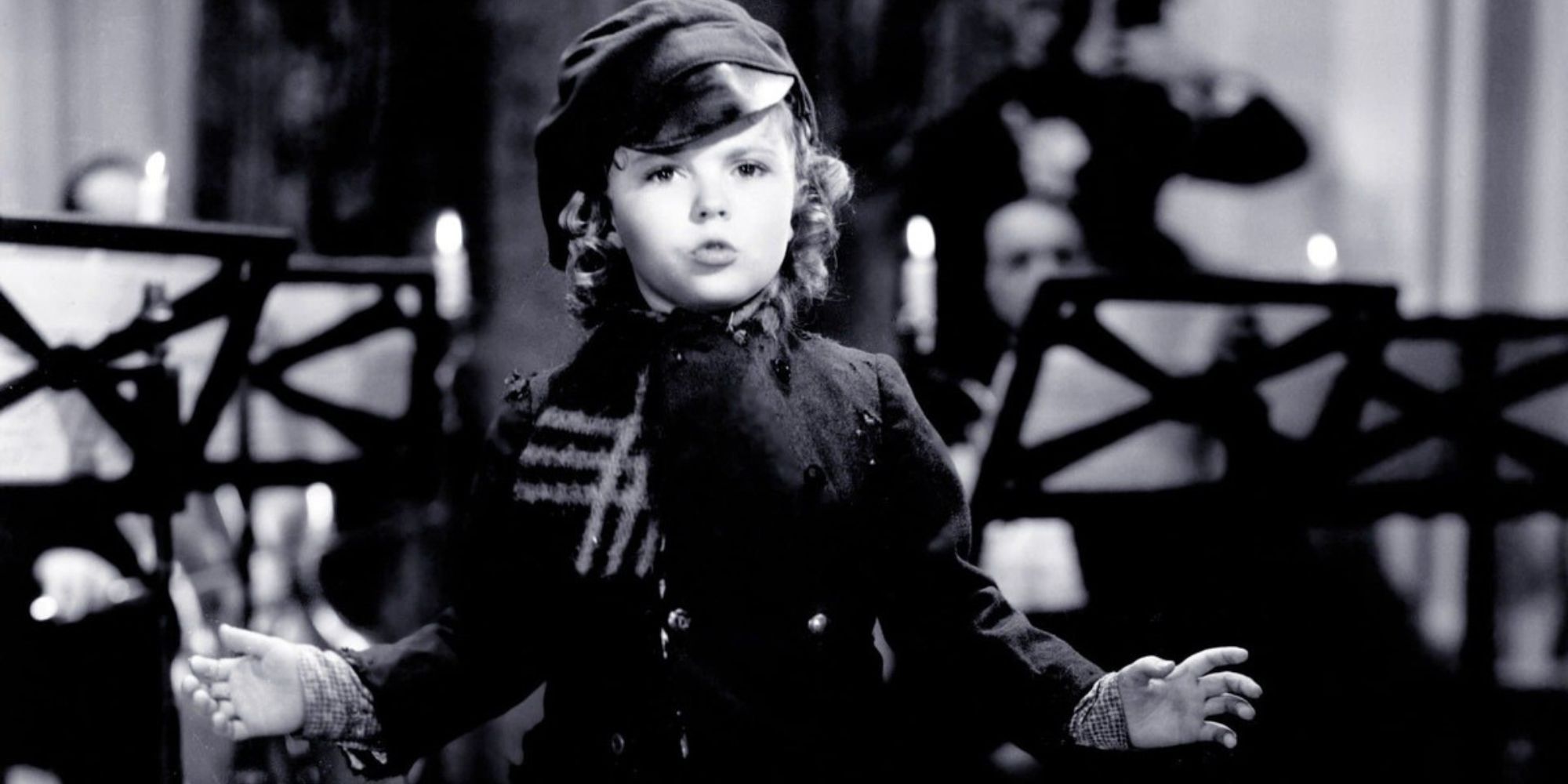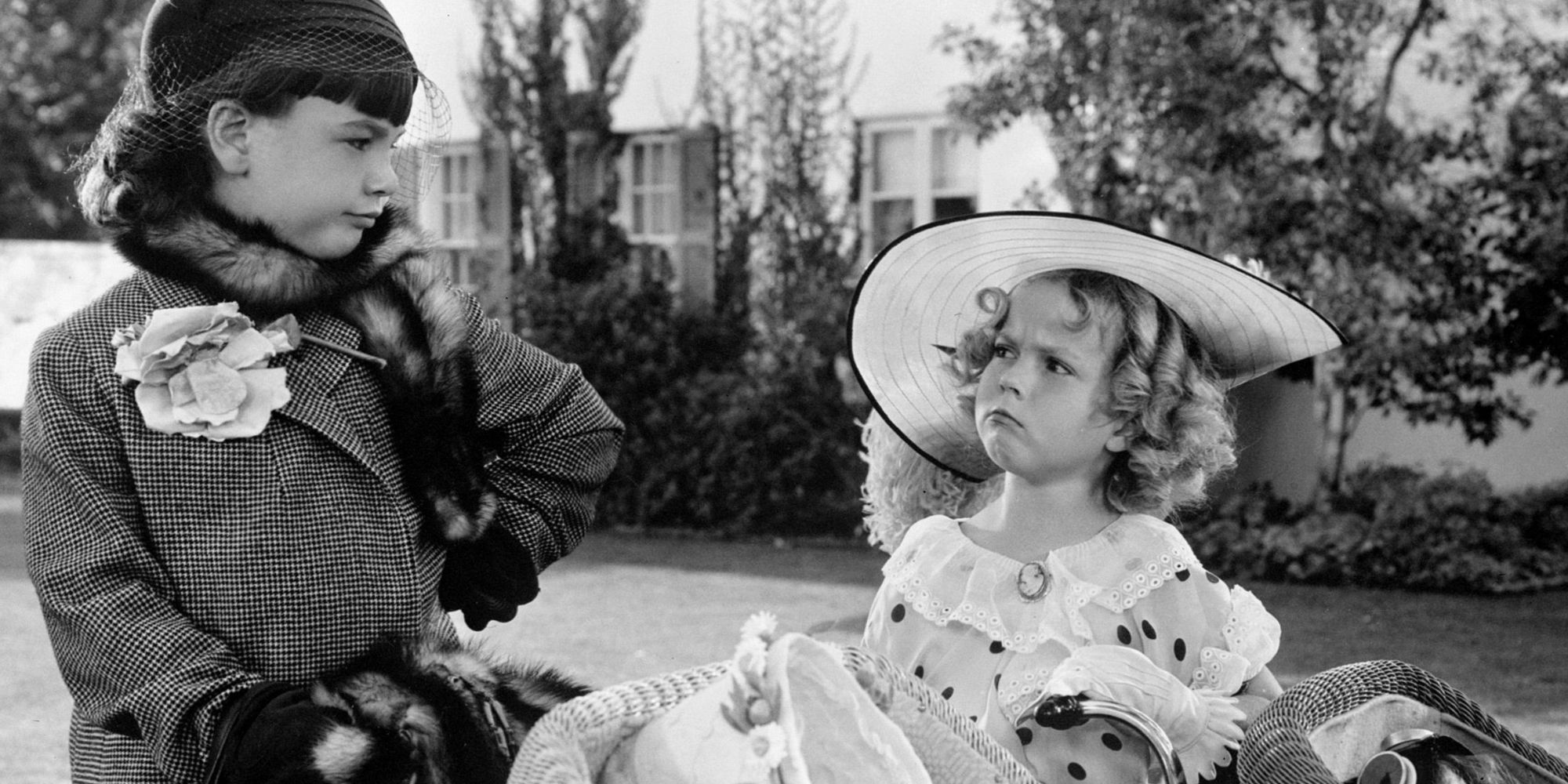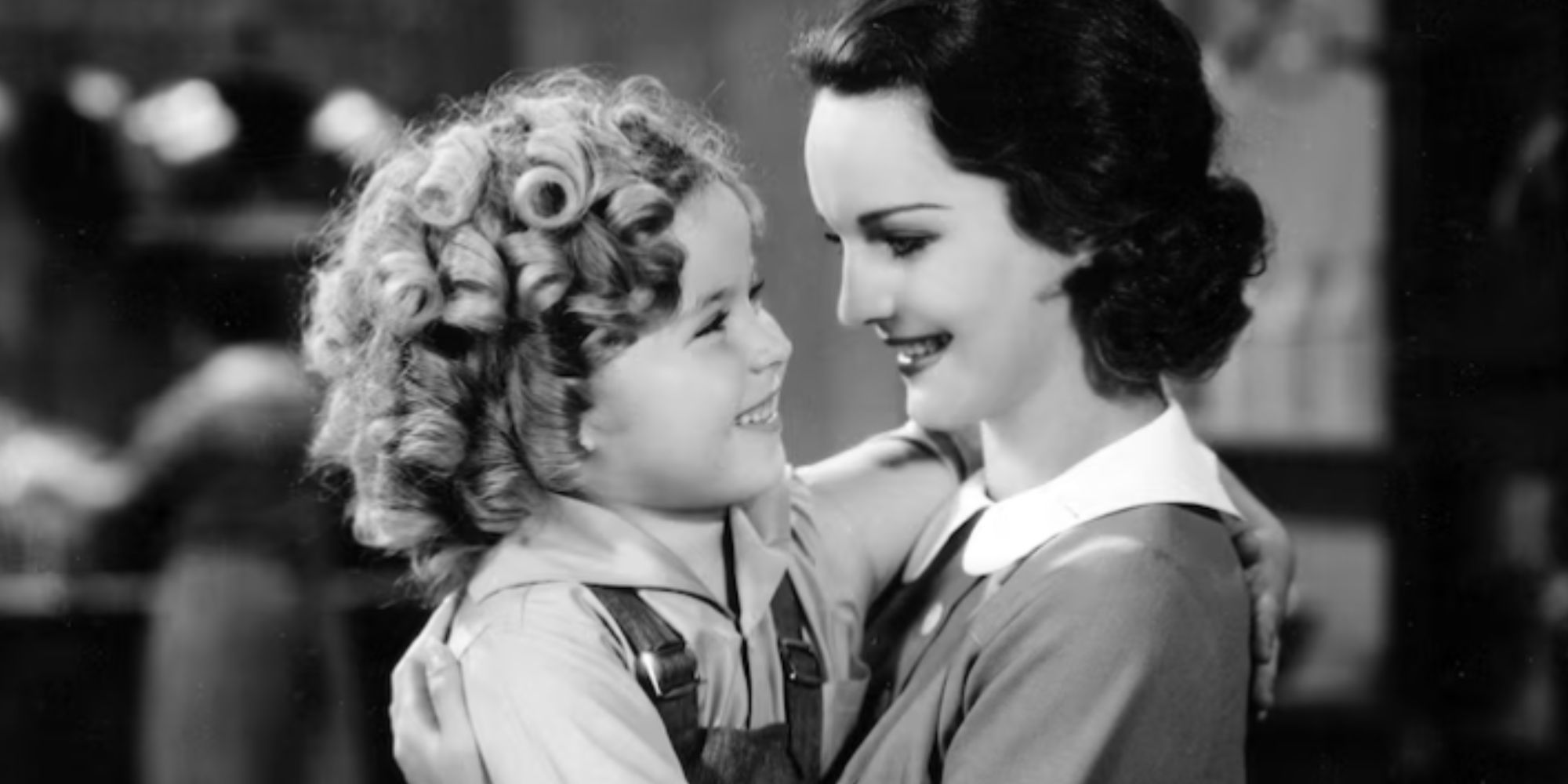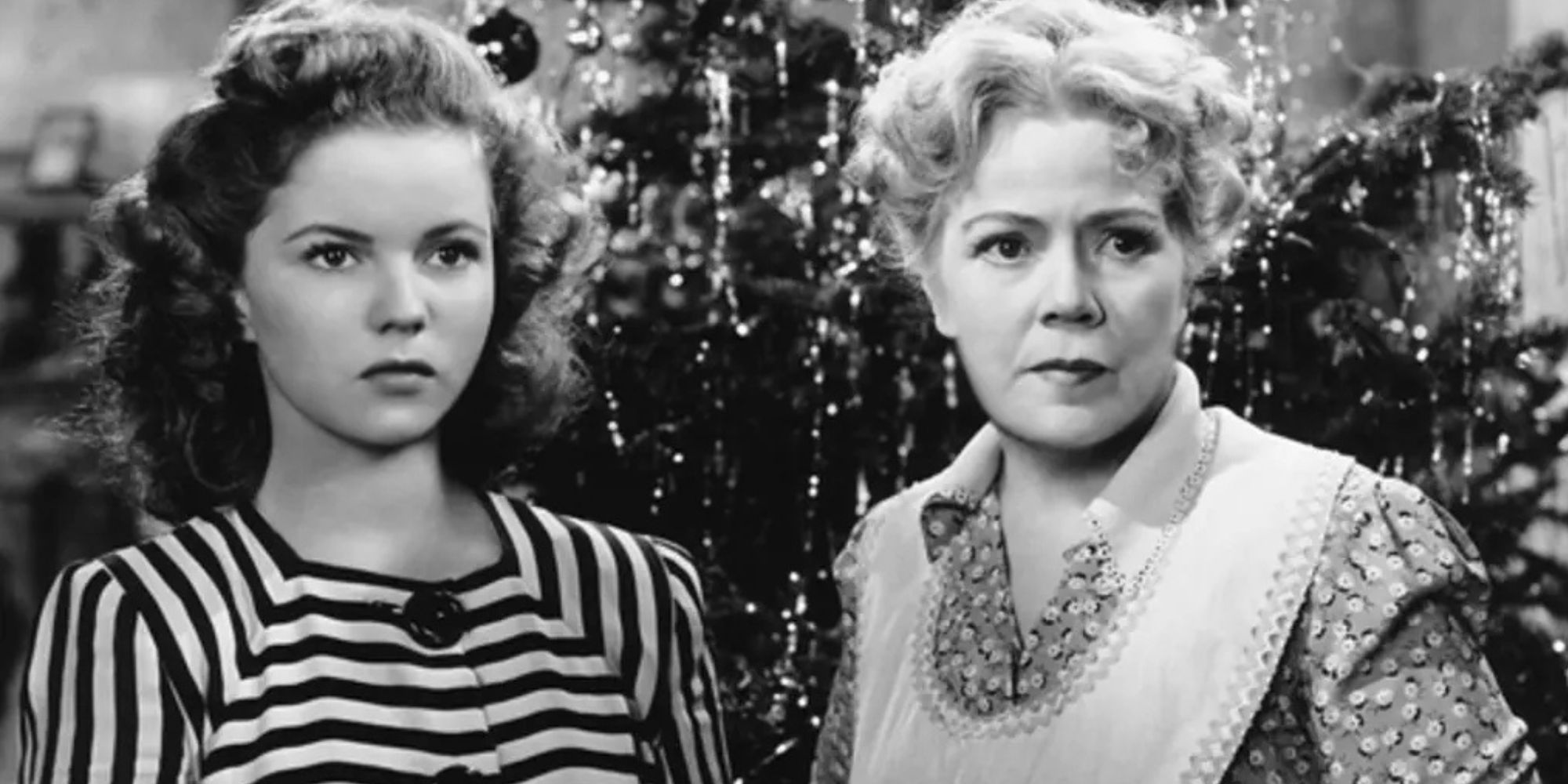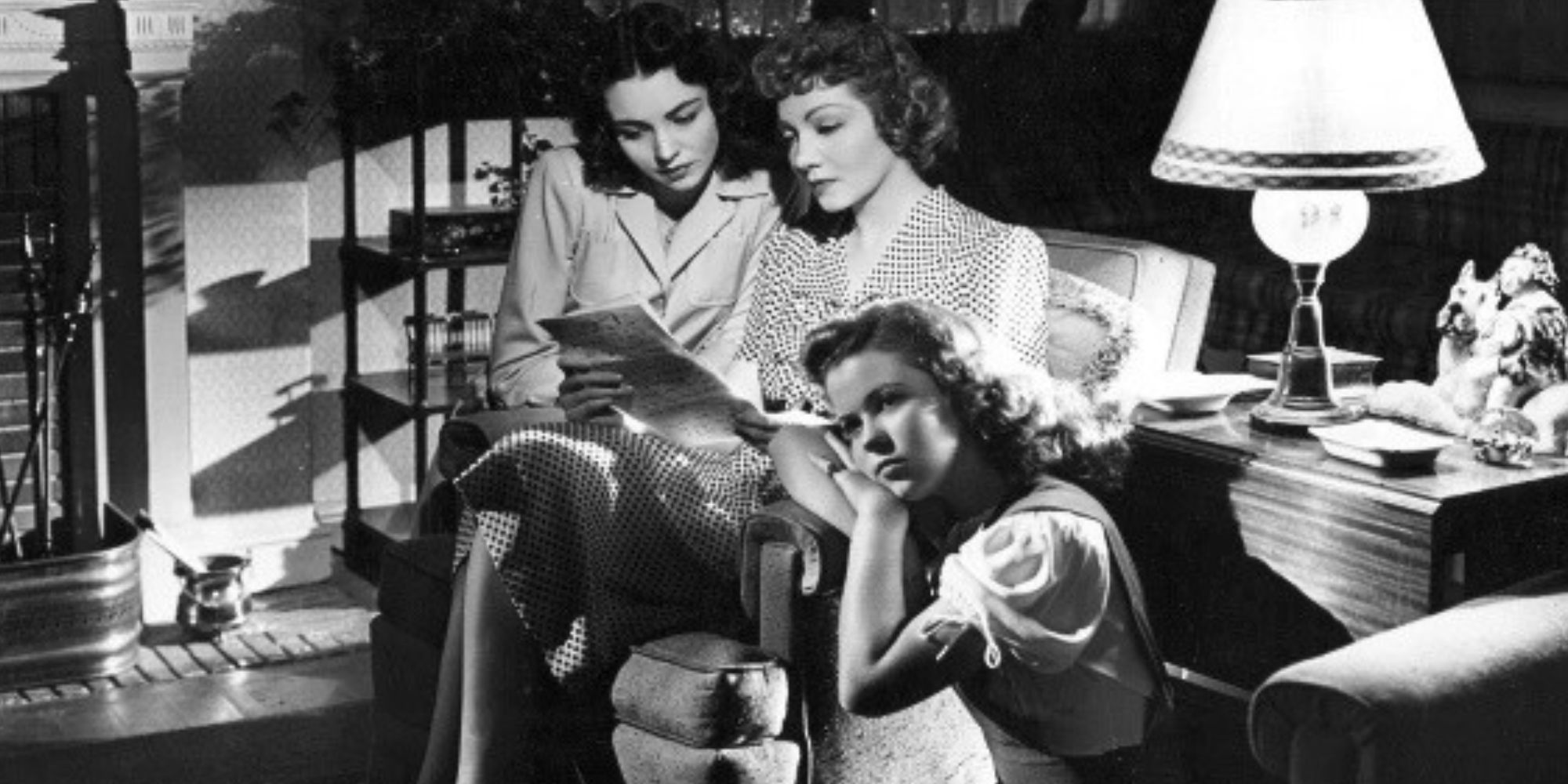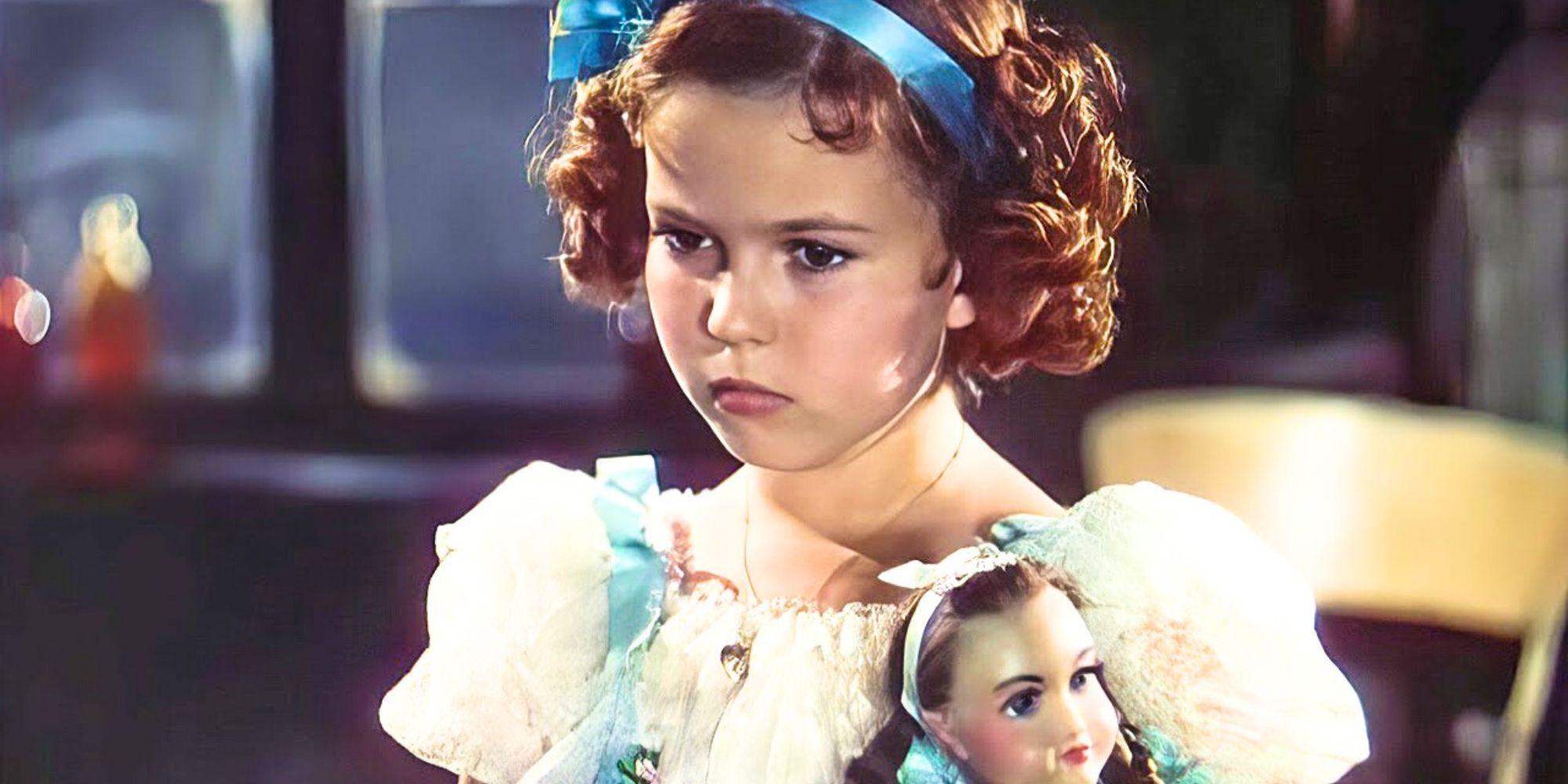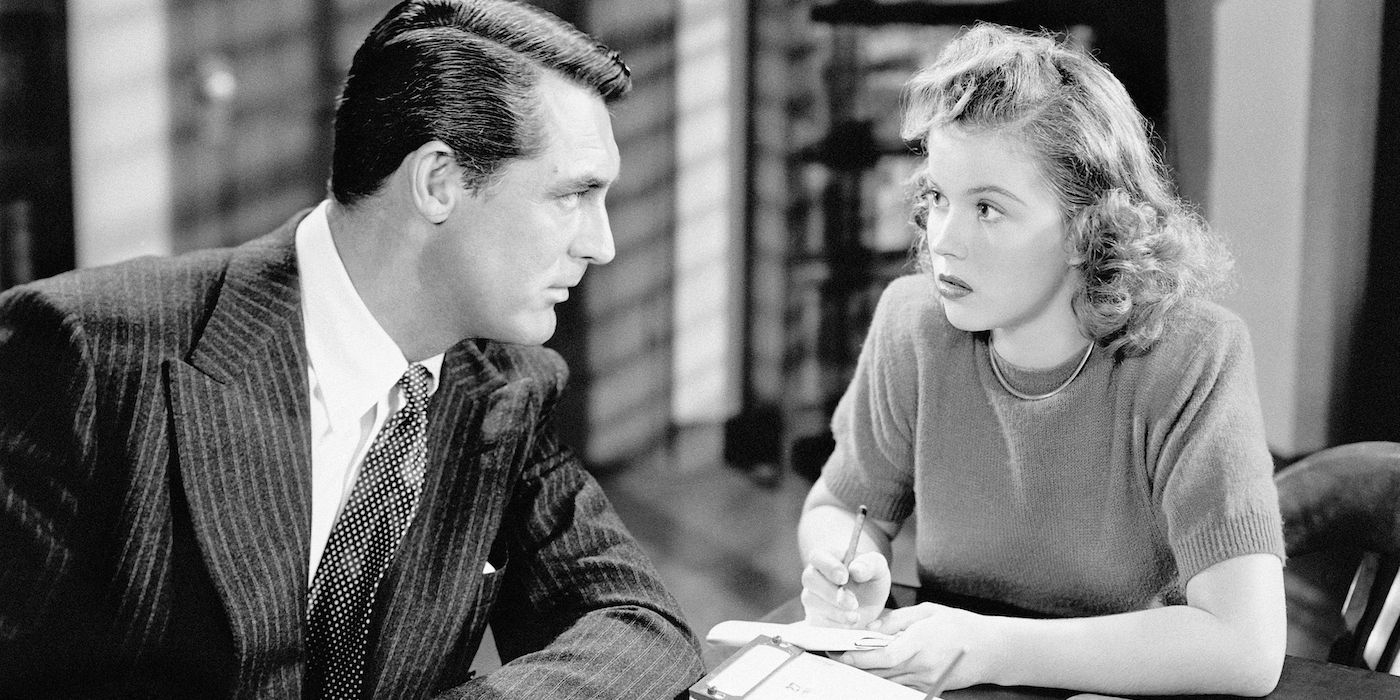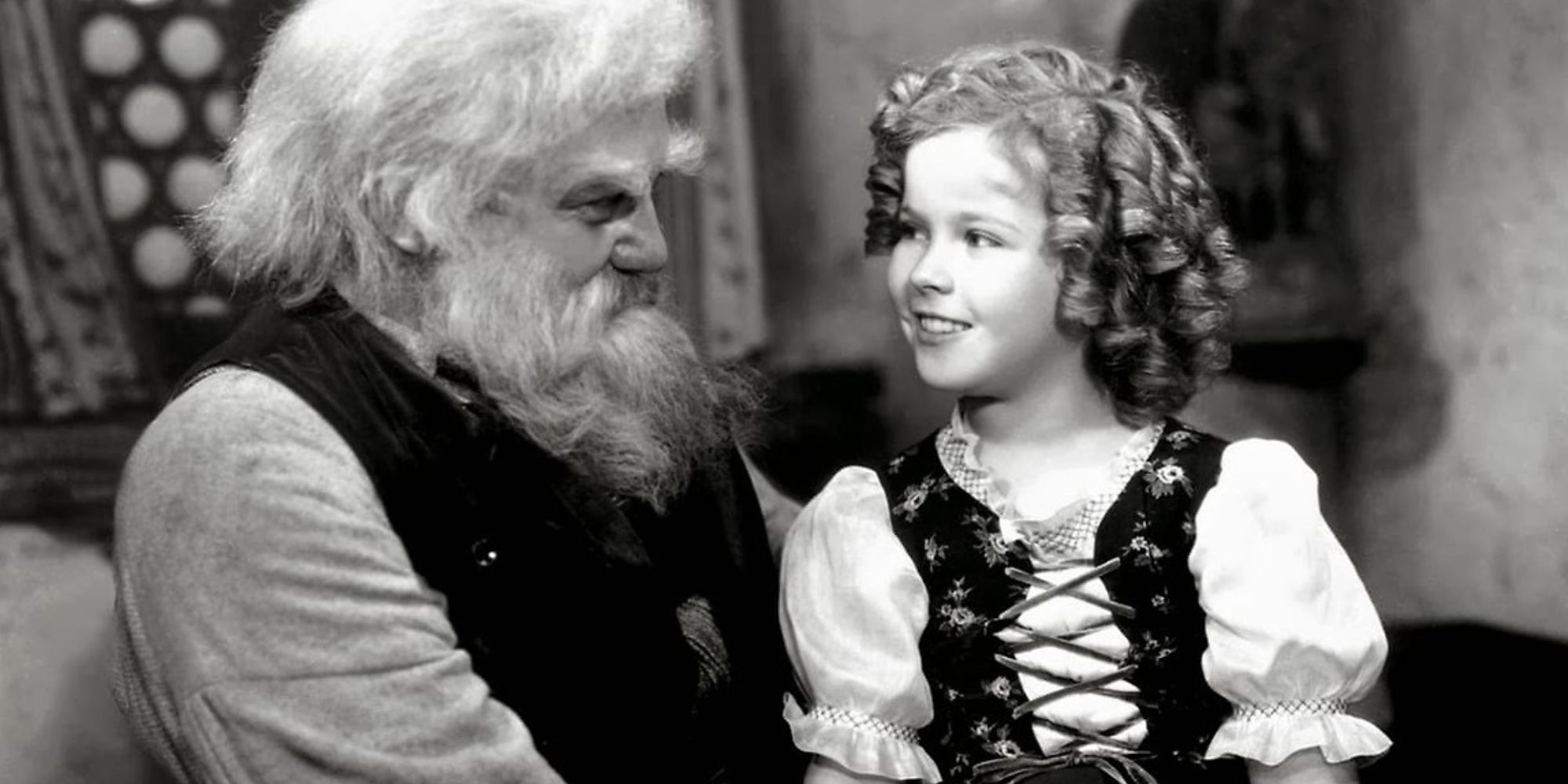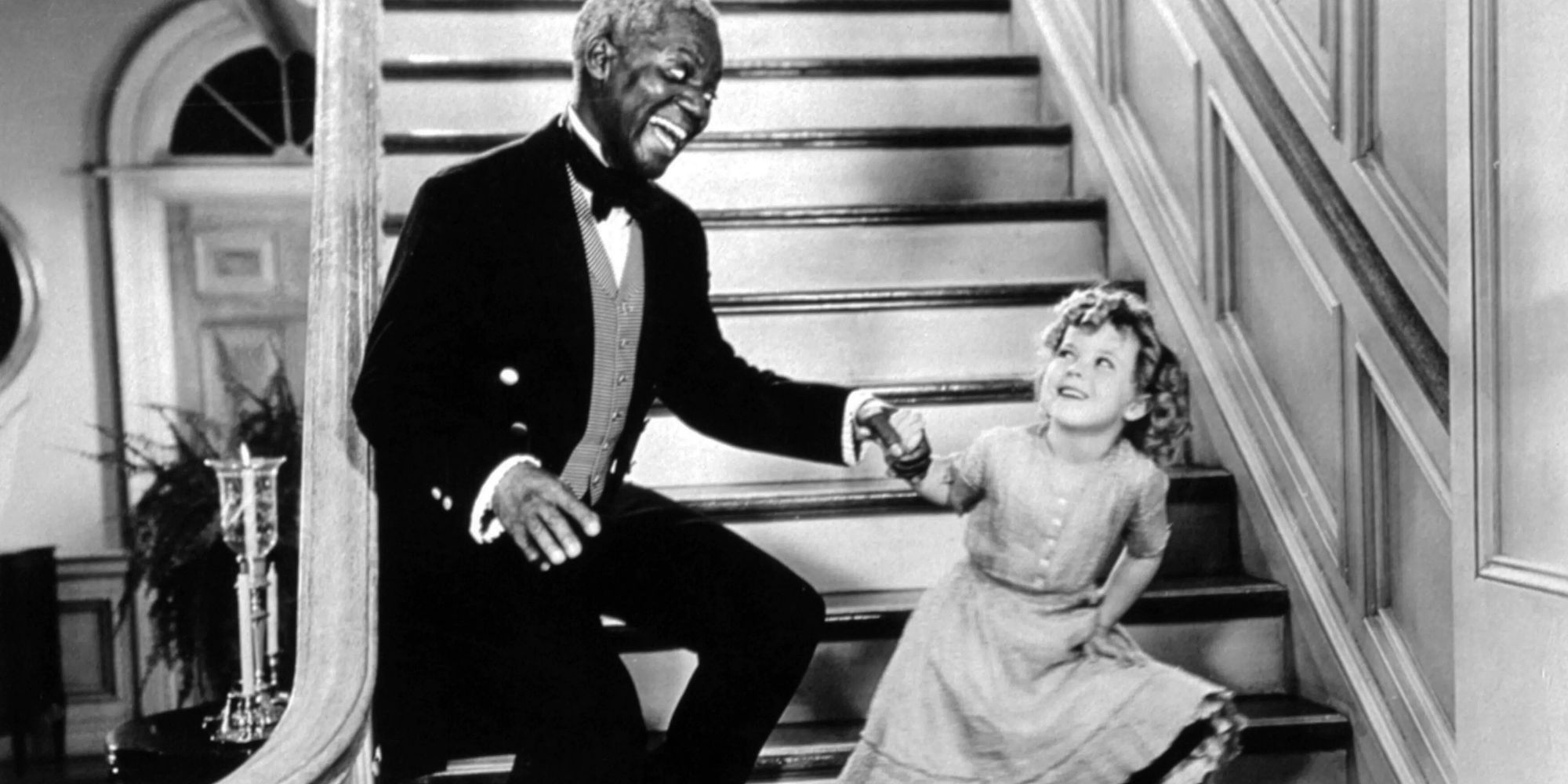During the 1930s, Shirley Temple was a bright light on the silver screen who entertained audiences in classic films such as Curly Top, The Little Princess, and Heidi. Born in Santa Monica, California, Temple learned to sing, dance, and act at a young age, and by 1932, she had signed a contract with Educational Pictures, appearing in various comedy shorts. In 1933, Temple finally earned her big break and landed a role in the musical film, Stand Up and Cheer! Temple soon became a national sensation and one of the biggest stars of the silver screen, serving as an unofficial symbol of hope, kindness, and generosity.
Temple is one of few child stars who managed to have a solid career as an adult, appearing in hit films including I’ll Be Seeing You, Since You Went Away, and The Bachelor and the Bobby-Soxer with Cary Grant. By the late 1940s, Temple retired from acting and, in 1969, she turned her attention to politics, becoming the U.S. Ambassador to Ghana and later, the first female U.S. Chief of Protocol. Today, Temple is remembered for making history both on and off the big screen and is considered to be one of the greatest stars and triple threats of Hollywood’s Golden Age who starred in an impressive list of classic films.
10 ‘Now and Forever’ (1934)
Appeared as Penny Day
Gary Cooper stars as a carefree con man, Jerry Day, who is in desperate need of money and initially plans to sign away his parental rights of his daughter from his first marriage, Penny (Temple), who he has never met before. When Day meets Penny, he falls instantly in love with her and, after changing his mind about signing away his parental rights, he and his second wife, Toni (Carole Lombard), decide to change their criminal ways and make room in their lives and home for darling Penny.
Temple’s performance in the heartfelt melodrama Now and Forever was one of her early film roles that ultimately skyrocketed her to infinite stardom, making her a major box office draw and an adored child of classic cinema. Despite her small stature, Temple brings an honest maturity and charming innocence to her character that is captivating for audiences, viewing the young star as a refreshing and hopeful public figure during one of the most devastating times in American history.
9 ‘Dimples’ (1936)
Appeared as Dolores “Dimples” Appleby
Dolores “Dimples” Appleby (Temple) is a child street performer who lives in poverty with her grandfather, Eustace (Frank Morgan), who secretly steals in order to provide for her. When Dimples gets the chance to perform at the prominent Drew family estate, Caroline Drew (Helen Westley) grows fond of the young girl and offers to take her in and provide her with a better life.
Temple puts on a toe-tapping performance in the musical drama, Dimples, performing several song and dance routines throughout the film. According to Temple’s 1988 autobiography, Child Star: An Autobiography, there was a lot of friction between her and her co-star, Frank Morgan. The two would constantly try to upstage each other and attempt to steal scenes with minor gestures. Despite the drama off-camera, Dimples still proves to be a notable and entertaining film in Temple’s career and a humorous testament to her tiny but mighty personality.
Dimples
- Release Date
- October 9, 1936
- Director
- William A. Seiter
- Cast
- Frank Morgan , Shirley Temple , Robert Kent , Helen Westley , Stepin Fetchit , Astrid Allwyn , Brook Byron , Berton Churchill , Paul Stanton , Julius Tannen , John Carradine
- Runtime
- 79 minutes
8 ‘Bright Eyes’ (1934)
Appeared as Shirley Blake
After her father was killed in a plane crash, five-year-old Shirley Blake (Temple) and her mother, Mary (Lois Wilson) went to live with the wealthy but mean-spirited Smythe family, where Mary works as the family’s housekeeper. No one in the Smythe family really cares for Shirley except for Uncle Ned (Charles Sellon), who gave her the nickname, Bright Eyes. Shirley prefers to spend her time with her godfather, James “Loop” Meritt (James Dunn), and when her mother is killed in a car accident, a heated custody battle ensues for the young girl between Meritt and Uncle Ned.
The comedy-drama, Bright Eyes, features Temple performing her signature song, On the Good Ship Lollipop, which was ranked at number sixty-nine by the American Film Institute on their 2004 list of “100 Years…100 Songs.” While the film has a somber touch about death and loss, Temple delivers a perfect blend of joy and drama that softens the harsher characters and tones throughout the film. Bright Eyes was one of two films Temple starred in (the other, Little Miss Marker) that earned her a Juvenile Academy Award for her contributions to cinema, making her the first child in history to ever win an Oscar.
7 ‘Curly Top’ (1935)
Appeared as Elizabeth Blair
A charming little girl, Elizabeth (Temple), lives in an orphanage with her sister, Mary (Rochelle Hudson), who works in the kitchen. The sisters are a bit of an entertainment duo, with Mary writing little tunes for Elizabeth to perform for the other kids. When a wealthy gentleman, Edward Morgan (John Boles), sees one of Elizabeth’s performances, he’s impressed by her and offers to adopt her. Since Elizabeth will only go if her sister comes with her, Morgan is left with no choice but to invite both sisters to come and live with him in his luxurious mansion, leading to him falling in love with Mary.
Temple effortlessly dominates in the romantic musical comedy Curly Top, conveying an unwavering sense of charisma and humor that is impossible not to admire. While some critics felt the overall situation of the plot was rather unusual and far-fetched, Temple’s performance is a vivid distraction from audiences really caring about the minor shortcomings. Curly Top is also noted for Temple’s performance of another one of her well-known songs, Animal Crackers in My Soup, which is one of the best musical numbers in the film.
6 ‘I’ll Be Seeing You’ (1944)
Appeared as Barbara Marshall
When Zachary Morgan (Joseph Cotten) meets Mary Marshall (Ginger Rogers) while aboard a train, there’s an immediate mutual attraction between the two, but they’re both hesitant to act on their emotions due to secrets they harbor from their past. Morgan is a war veteran who is secretly struggling with PTSD and is currently on leave from a veteran’s hospital, while Mary is a convict on release for the upcoming Christmas holiday.
Temple takes on a supporting role in the bittersweet drama I’ll Be Seeing You as a young woman, Barbara, who is a cousin of Roger’s character and one of the few people who Mary confides in about the crime she has been imprisoned for. The movie was both a critical and commercial success and marked one of Temple’s first major performances as an adult performer alongside big stars like Cotten and Rogers. Aside from Temple’s performance, I’ll Be Seeing You is also known for featuring the nostalgic 1938 song of the same name which has been performed by countless musicians, including Billie Holiday, Jimmy Durante, and Norah Jones.
5 ‘Since You Went Away’ (1944)
Appeared as Bridget “Brig” Hilton
During World War II, a mother, Anne Hilton (Claudette Colbert), struggles on her own to care for her two teenage daughters, Jane (Jennifer Jones) and Bridget (Temple), while her husband is away fighting in the war. With money being tight, Anne tries to earn some extra wages by lodging two men, an elderly veteran (Monty Wooley) and a handsome lieutenant (Joseph Cotten) in her home, who both soon start to feel a part of the family supporting one another through the difficult times.
Based on the 1943 novel Since You Went Away: Letters to a Solider from his Wife by Margaret Buell Wilder, Since You Went Away is an Oscar-winning wartime drama about an average American family trying to survive during the Second World War as well as the immense impact it had on millions of Americans. Temple again finds herself among major film stars, but she still delivers an exceptional and endearing performance, demonstrating her diligent and dramatic talent.
4 ‘The Little Princess’ (1939)
Appeared as Sara Crewe
When her father (Ian Hunter) is called to war, Sara Crewe (Temple) is taken to Miss Minchin’s School for Girls, where she is to live until he is able to return. While Sara is worried about her father’s safety, she lives a comfortable and lavish life at Miss Minchin’s, but when word arrives that her father has been killed in battle, the funds for Sara run out, leaving her to become a servant at the school. Convinced that her father is still alive, Sara manages to escape the boarding school and sets out in search of her father.
Based on the 1905 novel by Frances Hodgson Burnett, The Little Princess is one of Temple’s finest films and also her first filmed entirely in Technicolor. The film also marked Temple’s final successful picture as a child star. Despite some minor unrealistic elements, critics still praised The Little Princess, noting the unique blend of fantasy-like elements and the gritty realism of the film’s setting. They also commended Temple, who conveys a riveting performance as a headstrong and determined young heroine and a child wise beyond her years with an unbreakable spirit.
3 ‘The Bachelor and the Bobby-Soxer’ (1947)
Appeared as Susan Turner
Cary Grant stars as a playboy, Dickie Nugent, who, after being arrested for fighting at a club, faces a judge, Margaret Turner (Myrna Loy), who he manages to charm into letting him off on the charges. Shortly after, Nugent ends up teaching a class at a local high school where one of his students, Susan (Temple), falls head over heels for him, and not only is she too young for him, but she is also Turner’s younger sister. When Susan sneaks out and is found in Nugent’s apartment, Turner orders Nugent to date her sister in hopes that it will deescalate the young girl’s attraction to him.
Temple stars in the romantic screwball comedy, The Bachelor and the Bobby-Soxer, alongside two of classic Hollywood’s greatest comedy stars, Loy and Grant. The film demonstrates Temple’s highly underrated comedic chops, delivering a laugh-out-loud performance, easily conveying the traditional love-sick teenager without coming off as a cliché or overdone. The Bachelor and the Bobby-Soxer is considered to be one of Temple’s best films as an adult and was a major commercial and critical success. The film went on to win the Academy Award for Best Original Screenplay for Sidney Sheldon, who went on to create the hit television series, I Dream of Jeannie.
2 ‘Heidi’ (1937)
Appeared as Heidi
Temple stars as an adorable orphaned young girl, Heidi, who happily lives with her cranky but kind grandfather, Adolph (Jean Hersholt), and mean-spirited aunt, Dete (Mady Christians) in the quaint Swiss Alps. When Heidi is kidnapped by her selfish aunt and sold as a servant and companion for a spoiled, disabled girl, Adolph sets out to find his granddaughter while the young girl remains hopeful that she will return home and see her grandfather again.
Loosely based on the 1880 children’s book by Johanna Spyri, Heidi is a charming classic tale full of genuine human spirit and heart. The film marked Temple’s third consecutive year in a row as the number one box office draw and is considered by many to be one of the child star’s finest performances. Temple’s sweet and sentimental bond with Hersholt is the essential heart and soul of this film, which also embodies the traditional story about the bond of family and resilience to overcome incredible odds and obstacles in life.
1 ‘The Little Colonel’ (1935)
Appeared as Lloyd Sherman
Set during the post-Civil War, Colonel Lloyd (Lionel Barrymore) becomes estranged from his daughter, Elizabeth (Evelyn Venable), when she disobeys him and elopes with a Northern man, Jack Sherman (John Lodge). Six years later, Elizabeth returns home with her daughter (Temple), and initially, the granddaughter and grandfather have a tumultuous meeting, but over time, they become close and form a surprising bond.
The Little Colonel is Temple’s greatest film, which features her with her frequent co-star and choreographer, Bill “Bojangles” Robinson, who appeared with the child star in four films. While all of their films feature memorable performances, The Little Colonel is noted for featuring the first interracial performance in American cinema. Temple was originally instructed to dance side by side with Robinson in the staircase routine, but during filming, she took her partner’s hand in hers, proving that one simple gesture can make a monumental difference. Today, Temple and Robinson’s iconic staircase routine in The Little Colonel is considered to be one of the best musical performances of all time and is also credited as a significant moment in cinema history.
Source link
